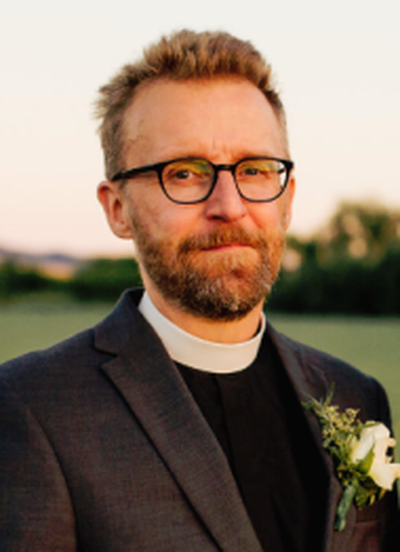Faith and Values: Feeling stuck? Go create

My friend Matthew David shared a post on social media a year or two back that I have thought of often since then. He wrote something like, “After two hours, this is the progress on my essay.” Below those words, standing as evidence, was a photo of a word-processing document, entirely white but for a single word in the upper left-hand corner: The
I laughed pretty hard when I saw that.
It was laughter of recognition.
I don’t know why things just flow sometimes, why there are occasions when we can write as fast as we can type (or, maybe, paint or sculpt or build as fast as our hands can move the brush or the chisel or the wrench), and then there are other occasions when our creativity moves at the pace of the line at the DMV.
It sucks to be stuck.
And human beings can get stuck not just in the intersection between our minds and our hands, but in so many other places. We can get stuck in prayer, so that our conversation with the silence, with the still small voice that is God, can feel forced or false or facile. We can get stuck in our conversation with our fellow citizens, so that cynicism and apathy and rage become our starting point. We can get stuck in our conversation with our friends in grief, so that we become so afraid of saying the wrong thing that we become awkward and distant and maybe even begin to avoid them altogether.
How do we get unstuck?
Well, the old adage says, “If it’s worth doing, it’s worth doing well.”
But it was another friend, my colleague Myra, who introduced me to a wonderful variation on that adage. Myra said, “If it’s worth doing, it’s worth doing badly.”
Sometimes, if we want to get any writing or painting or whatever done, we have to let go of the expectation that what we create will be perfect or even excellent or even good or passable.
We have to just create and be at peace – or at least as close as we can get to peace – with the possibility that what we create might well be crap. We have to do things badly. Because what regularly happens when we create what Anne Lamott describes as a “shaky” first draft (using an unprintable expletive that shares three letters with “shaky”) is that there are ideas and phrases and possibilities in that draft that can serve as the seed for an OK second draft and maybe even a pretty good third draft – if not an A paper, then at least a B+.
Maybe other kinds of getting unstuck are the same: connecting with God; connecting with our fellow citizen; connecting with someone in grief. Sometimes, allowing ourselves to do our work badly – work which is so important, which is so worth doing – is what allows us to do it at all.
To be sure, doing stuff badly is hard on our egos. I don’t know about you, but I don’t like appearing to be anything less than calm and competent and in control. But I am convinced that it is worth the risk of powering through our reluctance. Because a lot of the time, maybe all of the time, when we risk showing up in our imperfection, Jesus shows up as well.
So, go write badly. Go visit a friend in grief and be totally socially incompetent. If you haven’t been to church in a while and you’re worried that showing up at Christmas might be weird or that you might cry, go to church and let it be the most awkward experience in history. Leave a pool of tears three-feet deep on the floor of the Nave.
In the upper left-hand corner of your life there sits the word The.
Start writing.
Start writing badly. It is worth doing. Because, I promise you, your shaky first draft will yield a story that God can’t wait to read: a story of love and loss and everything in between, a story that no one but you can tell.
The Rev. Martin Elfert served on the staff of the Episcopal Cathedral of St. John the Evangelist in Spokane from 2011-2015. He is now the rector of Grace Memorial Episcopal Church in Portland, Oregon.